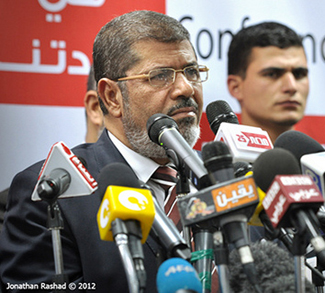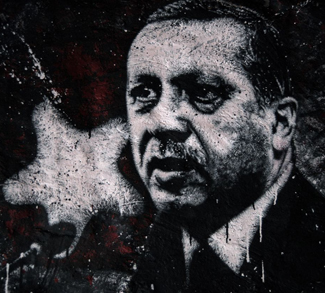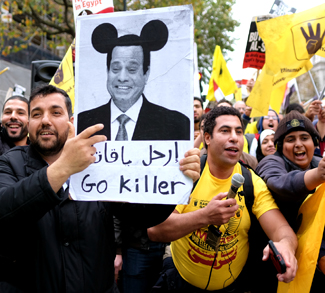The August 5th ambush of 16 Egyptian troops in Sinai may prove to be a litmus test for Egypt’s new President Mohammed Morsi.
Fresh from his June election victory, President Morsi has enjoyed an unexpected honeymoon in which Egypt has earned a reprieve from the social and economic malaise that triggered the Arab Spring and the eventual demise of Hosni Mubarak.
That honeymoon was cut short by recent Sinai attacks that killed soldiers on low alert during Ramadan.
These attacks have reverberated throughout the chasms of Egypt’s internal divisions and foreign policy dilemmas, as exemplified by the unwelcome reception that Prime Minister Kandil received from mourners at a funeral for one of the fallen soldiers. The attacks also have a regional dimension. Sinai has long been neglected by a central government caught up in the politics of the Arab Spring, and charges of Bedouin involvement point to a possible tribal sectarian element. For the Saudis and Americans- Egypt’s joint benefactors to the annual tune of five billion USD–this was the hand of Al Qaeda in a “lawless” desert.
Morsi’s own Muslim Brotherhood, from which he resigned to prove his allegiance to all of Egypt, issued the perfunctory charge that Israel’s Mossad was behind the attack.
Yet President Morsi’s response suggests an evolution from unaccountable radical opposition leader to a responsible statesman capable of identifying and weighing multiple factors in pursuit of the national interest. For the mistaken assumption that Muslims wouldn’t attack other Muslims during Ramadan, Morsi sacked his intelligence chief, Murad Muwafi. In this act Morsi signaled to the Egyptian military that had dissolved parliament after his election that he was firmly in control. At the same time, Morsi took care to ask now-retired Field Marshall Tatwani to recommend Muwafi’s replacement. Thus it seems clear that Morsi understands both the distribution of domestic power and the means by which it is acquired, lost, and negotiated.
On the regional front, Morsi deflected calls to blame Israel, an act made easier by the fact that the dismissed Muwafi admitted he had received alerts from the Israelis about an imminent attack. Furthermore, since the attackers turned their guns on the Israeli border while their Egyptian victims still bled, and since the Israelis routed the assault without difficulty, Morsi found himself grappling with the awkward truth that Mubarak and the Generals had accepted long ago: security cooperation with Israel is a mutual interest.
Notwithstanding his ideological alignment with Hamas and the measures he took to open the border with Gaza at Rafah, Morsi’s first pragmatic response as President has been to seal the tunnels and demand that Ismail Haniyeh turn over a list of terrorist suspects. If Mubarak is still alive, a thin vindictive smile might cross his face.
That said, the relief that Israelis, Americans, Saudis and Jordanians might feel in response to Morsi’s open display of pragmatism should be tempered by the fact that pragmatism cuts both ways. Morsi’s realpolitik take on Egyptian national interest is not at odds with improved ties with Iran. It seems Morsi views Iran as a regional power that cannot be ignored- no matter what its ambitions or rhetoric. A possible restoration of diplomatic relations severed after the Iranian Revolution in 1979 is conceivable, and an upgrade in representation probable. Iranian vessels on the Suez Canal may irritate Washington, Amman, Riyadh and Jerusalem, but not enough to make such a move impractical for Egypt- provided of course that Iran does not exploit Cairo’s overture and raise the stakes with weapons shipments to Hezbollah or Assad’s Syria.
It may be too soon to tell, but first crisis indicators are that Mohammed Morsi intends to govern Egypt and manage Cairo’s diplomatic affairs as a pragmatist and Realist.




